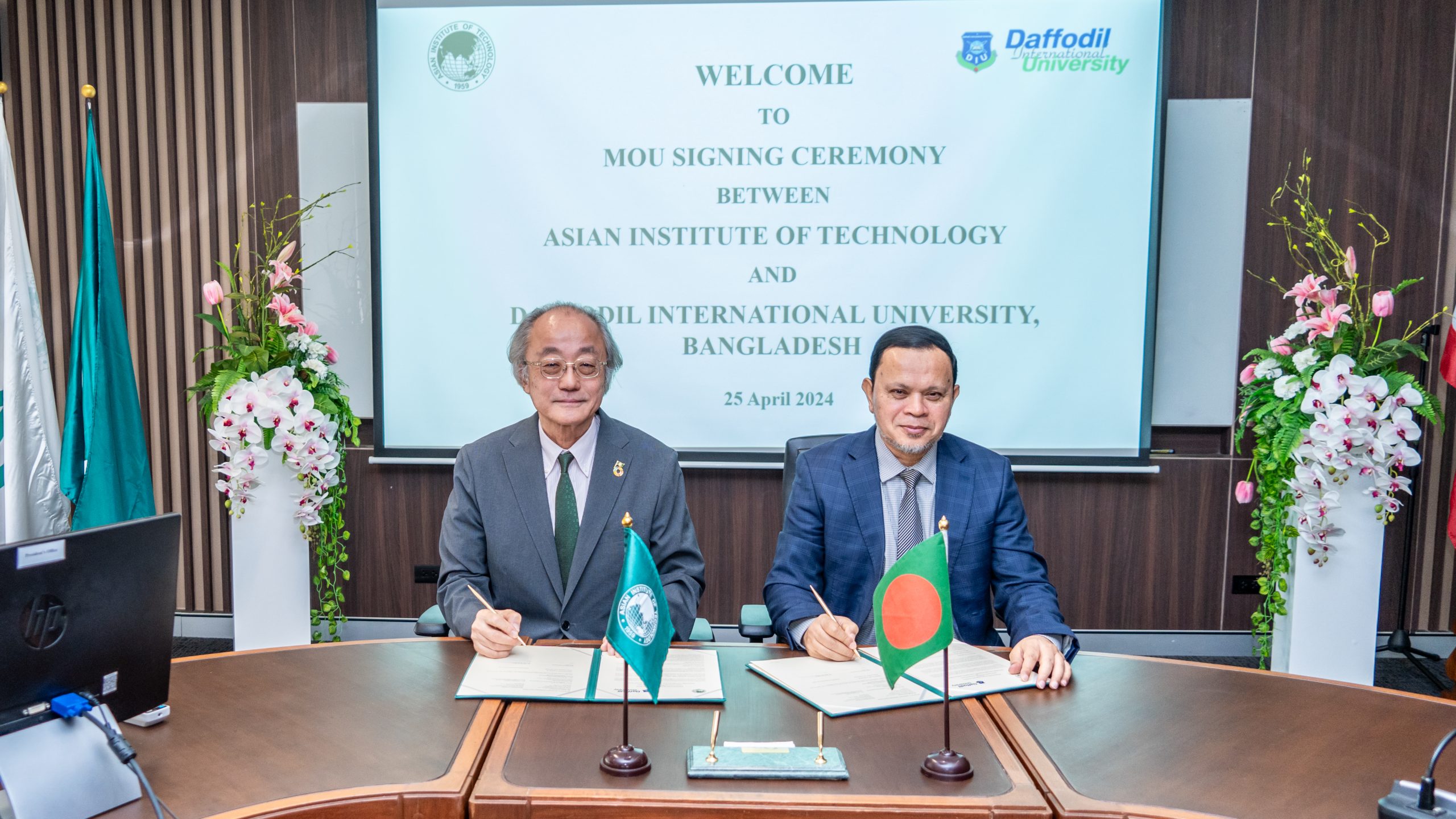By AIT Public Affairs and GIC
18 April 2024: A new initiative “Mapping the Plastic Litter Leaking into the Waterways of Mekong Countries and Providing Innovative Solutions for Efficient Waste Management” has been launched to tackle the growing problem of plastic pollution in Southeast Asia. The project aims to map and reduce the amount of plastic waste that ends up in the waterways of the Mekong countries through 4 pilot cities, Bangkok (Thailand), Vientiane (Lao PDR), Battambang (Cambodia), and Can Tho (Vietnam).

The Geoinformatics Center (GIC) at the Asian Institute of Technology (AIT) is leading the project in collaboration with various regional partners. These partners include the Environmental Research Institute of Chulalongkorn University, TerraCycle Foundation Thailand from Thailand; Institute of Strategy and Policy on Natural Resources and Environment (ISPONRE), GreenHub, ClearRivers from Vietnam, The Environmental Education and Recycling Organization (COMPOSTED), and the Royal University of Phnom Pehn (RUPP) from Cambodia, and the National University of Laos from Lao PDR. This project will run for two years and three months and aims to implement an integrated approach to detect, mitigate, and prevent plastic leakage. The project is funded by the Republic of Korea through the Mekong-Korea Cooperation Fund (MKCF).
In the launching ceremony, Dr. Roger Levermore, the Vice President for Administration, expressed his appreciation for the remarkable effort and collaboration behind the project. He highlighted AIT’s commitment to addressing the global issue of plastic pollution through innovative solutions. Dr. Levermore emphasized the collaborative efforts of all stakeholders in achieving this transformative impact and expressed excitement about witnessing the positive outcomes of this project. The initiative presents a great opportunity to make a significant difference in the world.


Mr. Madhurjya Kumar Dutta, Director, Trade and Investment Facilitation & Coordinator, Mekong Republic of Korea Cooperation Fund – Mekong Institute, highlighted the collaborative nature of the project and emphasized the importance of regional cooperation and commitment to sustainable waste management. “By combining expertise and fostering a strong network, the initiative seeks to tackle plastic pollution in waterways. Together, with strong support from our partners, we aim to turn challenges into opportunities for environmental stewardship and regional development,” he added.
The initiative focuses on three main objectives to improve plastic waste management. Firstly, the aim is to prevent the leakage of plastic by identifying its sources and promoting sustainable practices in the short term. The long-term goal is to influence national policies for better waste management. Secondly, the objective is to detect and monitor plastic waste by creating a database to record and analyze plastic waste data and implementing remote sensing technologies. The long-term vision is to standardize data collection to inform policy decisions. Lastly, the goal is to set up collection points and pilot community-based management schemes initially under the Plastic Waste Collection objective. The ultimate aim is to ensure universal access to environmentally sound waste disposal services, supporting a sustainable and circular economy in the region. This project aims to address both immediate concerns and foster long-term sustainable methodologies that can be applied across the Mekong countries, setting a benchmark for future regional environmental initiatives.
The project intends to bring together a diverse group of stakeholders and leverage cutting-edge technology to create a model that can be replicated throughout the Mekong countries. By doing so, it envisions to contribute to a cleaner and healthier environment, not just for the present, but also for future generations.













